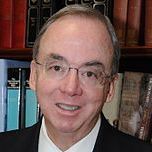A Baptist university in Missouri has invited independent review of teaching in its religion department after firing a professor who accused colleagues of doubting whether sinners who die without Christ must suffer eternally in hell.
Southwest Baptist University in Bolivar, Missouri, announced Dec. 22 the commissioning of an external peer assessment committee to lead a university-wide dialogue “regarding faith and learning” including “deeper conversations and evaluations regarding orthodoxy.”

Clint Bass
In November administrators fired Clint Bass, a tenured professor in the Courts Redford College of Theology and Ministry, for unprofessional conduct after he reportedly shared his concerns about “doctrinal instability” in the school with leaders of the Missouri Baptist Convention.
An online petition with nearly 1,400 signatures links to documents suggesting “a lack of doctrinal alignment” with teachings of the Southern Baptist Convention and that professors “appear more aligned with the Cooperative Baptist Fellowship,” a moderate group that differs with the SBC on matters such as women’s ordination and biblical inerrancy.
Specific questions include whether the university harbors religion professors “who do not believe the traditional doctrine of everlasting punishment.”
Theology professor and dean Rodney Reeves denied on social media that he is an “annihilationist” – someone who believes the lost will be destroyed rather than suffer endlessly – but he said more New Testament passages describe hell as destruction than as eternal punishment.
Zach Manis, a professor who teaches theology and philosophy, accused his former colleague of conducting a “witch hunt” and advocating an “indoctrination” approach to learning rather than “equipping students to think for themselves.”
Professors at two SBC seminaries voiced their doubts about whether Bass should have been fired.
Malcolm Yarnell, research professor of systematic theology at Southwestern Baptist Theological Seminary in Fort Worth, Texas, said he had assumed “the type of destructive pedagogy” described at Southwest Baptist University was a “relic of the past in Southern Baptist education.”
“A Bible teacher who would undermine established convictions and then leave students without direction toward fidelity to Christ through biblical orthodoxy does not merely fail but contradicts that teacher’s God-given vocation,” Yarnell wrote. “However, because SBU apparently does not require its professors to embrace a substantial Baptist confession, we should not be surprised at this turn of events.”
Tom Nettles, senior professor of historical theology at Southern Baptist Theological Seminary in Louisville, Kentucky, said it seemed to him “that Dr. Bass is the one who should be retained and a close investigation of the doctrinal stance of some other professors would be fitting.”
SBU President Eric Turner, named last summer to succeed 22-year President Pat Taylor — the longest serving president in the school’s history — said in Bass’ termination letter dated Nov. 28 that his allegations of liberalism were “unfounded.”
Grounds for dismissal included “deliberate and serious violation of the rights and freedoms of fellow faculty members by collecting evidence and ascribing views to them often without personal interaction” and “failure to observe the ethical and professional canons of the teaching profession by use of non-credible information to formulate accusations against fellow faculty members.”
Southern Hills Baptist Church, where Bass serves as an elder, said the former professor was “singled out for his strong convictions regarding the inerrancy of Scripture” and called for him to be reinstated.
Bass, an SBU alum with a master-of-divinity degree at Southern seminary in addition to a master’s degree from Duke and a doctorate from Oxford, told the Missouri Baptist newspaper The Pathway he did not use the word “heretic” to label his former colleagues or ask that anyone be fired.
He did say, however, that shortly after joining the faculty in 2009, he began noticing views that in his opinion were “irregular, deviant, aberrant or errant.”

David Dockery
David Dockery, president of Trinity International University in Deerfield, Illinois, will chair the external peer assessment committee. Before taking that post in 2014, Dockery was president of Union University in Jackson, Tennessee, and chief academic officer at Southern seminary.
Southwest Baptist University is one of two institutions of higher learning affiliated with the Missouri convention , a 1,782-church affiliate of the SBC. The other is Hannibal-LaGrange University.
Missouri Baptist University in St. Louis moved to a self-perpetuating board of trustees in 2001 in an effort to insulate its teaching mission from Baptist politics. State convention leaders responded with a lawsuit against the school, along with other litigation against former entities taking similar actions, that lingers in the legal system to this day.
A trial judge ruled in 2017 against Missouri Baptist University and The Baptist Home. The entities are seeking reversal of the judgment by the Missouri Court of Appeals.
The Baptist Faith and Message, the SBC’s official doctrinal statement, says in an article on “last things” that the unrighteous “will be consigned to Hell, the place of everlasting punishment,” and that the “righteous in their resurrected and glorified bodies will receive their reward and will dwell forever in Heaven with the Lord.”
Former pastor Rob Bell sparked controversy among evangelicals in 2011 with Love Wins, a New York Times best-selling book questioning the existence of a literal hell reviewed in the SBC’s Baptist Press as “dangerous” and a denial of “core Christian beliefs.”
